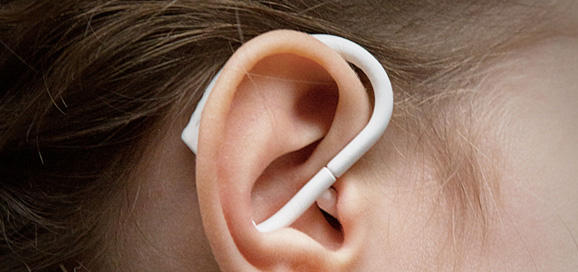- Home
- Symmetry Blog
- Bluetooth Low Energy wirelessly connected in-ear
From Nordic Semiconductor: Bluetooth Low Energy wirelessly connected in-ear thermometer provides continuous, accurate temperature measurement of babies and children
About Symmetry Electronics
Established in 1998, Symmetry Electronics, a Division of Braemac, is a global distributor of electronic components and systems. Combining premier components and comprehensive value-added services with an expert in-house engineering team, Symmetry supports engineers in the design, development, and deployment of a broad range of connected technologies.
Exponential Technology Group Member
Acquired by Berkshire Hathaway company TTI, Inc. in 2017, Symmetry Electronics is a proud Exponential Technology Group (XTG) member. A collection of specialty semiconductor distributors and engineering design firms, XTG stands alongside industry leaders TTI Inc., Mouser Electronics, and Sager Electronics. Together, we provide a united global supply chain solution with the shared mission of simplifying engineering, offering affordable technologies, and assisting engineers in accelerating time to market. For more information about XTG, visit www.xponentialgroup.com.

Nordic Semiconductor today announces that Munich, Germany-based body sensor company, cosinuss°, has selected Nordic’s nRF52840 Bluetooth® Low Energy (Bluetooth LE) advanced multiprotocol System-on-Chip (SoC) for its ‘degree°’ in-ear wearable thermometer for infants and children.
Weighing only 5.4g and offering a compact 40 by 40mm form factor, the adjustable degree° thermometer is fitted behind the child’s ear with the sensor sitting within the ear canal, providing continuous temperature measurement within a ± 0.1°C accuracy. The captured data is stored on the device, and once paired to the user’s Bluetooth 4.0 (and later) smartphone or tablet, is automatically synced using Bluetooth LE wireless connectivity provided by the nRF52840 SoC.
From the iOS and Android degree° app, parents can continuously monitor their child’s body temperature, a fever curve plotting any changes in temperature over time so the user can see how the child is responding to the effects of treatment, rather than relying on a single point temperature measurement that doesn’t show whether temperature is rising or falling. The parent can also set a fever alarm, triggering a notification in the event their child’s temperature is too high, or rising too quickly, which is particularly useful at night when constant monitoring of the child may not be possible. Multiple user profiles can be set for individual family members.
The thermometer is powered by a single Li-ion coin cell battery, providing up to five days of operation between recharge, thanks in part to the ultra low power characteristics of the Nordic SoC.
Nordic’s nRF52840 Bluetooth LE SoC is Nordic’s most advanced ultra low power wireless solution. The SoC supports complex Bluetooth low energy and other low-power wireless applications that were previously not possible with a single-chip solution. The nRF52840 is Bluetooth 5- and Thread 1.1-certified and its Dynamic Multiprotocol feature uniquely supports concurrent wireless connectivity of both protocols. The SoC combines a 64MHz, 32-bit ARM® Cortex® M4F processor with a 2.4GHz multiprotocol radio (supporting Bluetooth 5, ANT™, IEEE 802.15.4, and proprietary 2.4GHz RF software) with 1MB Flash memory and 256kB RAM. A new radio architecture with on-chip PA provides features -96dB RX sensitivity, a maximum output power of 8dBm, and a total link budget of >110dBm. The chip supports all the features of Bluetooth 5 (including 4x the range or 2x the raw data bandwidth (2Mbps)) compared with Bluetooth 4.2. Designed to address the inherent security challenges that are faced in IoT, the nRF52840 SoC incorporates the ARM® CryptoCell-310 cryptographic accelerator, offering best-in-class security.
The SoC is supplied with Nordic’s S140 SoftDevice, a Bluetooth 5-certified software protocol stack for building long range and high data Bluetooth LE applications. The S140 SoftDevice offers concurrent Central, Peripheral, Broadcaster, and Observer Bluetooth LE roles, and supports high throughput and long range modes as well as advertising extensions.
“We used Nordic’s nRF51422 SoC in an earlier product and learned during development about the advantages and features the Nordic chips offered, the separation of the SoftDevice and application code, the quality of support, and the good reference designs,” says Dr -Ing. Johannes Kreuzer, Cosinuss Founder and CEO. “For the degree thermometer we need a compact chip, with a large memory capacity, and very low power consumption, so the decision to change to the nRF52840 was very fast and easy.”
“This is an early and innovative health application based on Nordic’s most advanced chip, the nRF52840 SoC,” says Geir Langeland, Director of Sales & Marketing with Nordic Semiconductor. “The in-ear thermometer takes advantage of the chip’s large Flash memory allocation to allow for an increased data buffering capability.”
The degree° in-ear thermometer will be commercially available from early 2018.


